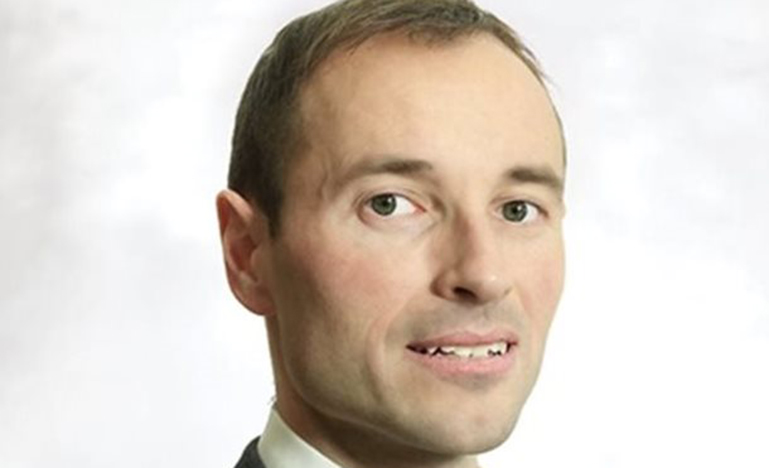Making a Difference: Duncan Marsden
Pro bono is where the action is. Why it’s crucial for young lawyers to do more of it.

Duncan Marsden’s pro bono work has taken him — figuratively at least — from the ceasefire in Sri Lanka to a school in Calgary where a gay band student wasn’t going to be allowed to share a dorm with the other boys at band camp.
Marsden, a partner at BLG in Calgary where he specializes in labour and employment law, also facilitated the establishment of the charity MitoCanada after a friend’s son was diagnosed with mitochondrial disease.
The winner of last year’s National Pro Bono Distinguished Service Award, Marsden likes to run in his free time. A self-described “track runner who’d run the odd marathon,” he ran his first ultra-marathon — Running on Empty, a 100-kilometre run through the mountain passes of Kananaskis Country in Alberta — in 2010, to raise money and awareness for MitoCanada.
How does a labour and employment lawyer come to establish a charity?
One of my very good friends has a child with mitochondrial disease. He was looking to set up a charity a number of years ago and so BLG helped him. … I then joined the Board of Directors and was on the Board for about four years.
Having set up the charity, I said to Blaine (Penny, the CEO of MitoCanada and father of the child in question), “Now we need to raise some funds” and that led to Running on Empty.
Last year a group of us got together and ran the Calgary marathon in support of MitoCanada. We ran as a group of 10 literally tied together and we broke the Guinness World Record for a linked marathon.
What has been your most important/interesting pro bono case?
I helped a gay high school student once who was told that if he wanted to go to band camp he had to sleep in a separate dormitory from the other boys. I worked with his school for a resolution and they really stepped up and initiated anti-bullying and acceptance initiatives.
Why is pro bono work important for younger lawyers?
It allows them to experience the Hollywood side of the legal profession. Pro bono cases tend to be the ones people like to hear about and it is good for junior lawyers to have exposure to clients and interesting cases. Also, they tend to go to trial more often, and courtroom experience is becoming increasingly valuable for junior lawyers.
Meet Kerry Simmons
Kerry L. Simmons, Q.C. was elected second vice-president of the CBA in March. A managing partner of Cook Roberts LLP in Victoria, she will assume the national presidency in August 2017.
Ottawa was near the end of its coldest February on record when members gathered for the 2015 Mid-Winter In 2012-13 she served as President of the BC Branch of CBA where she was an outspoken advocate for access to justice and access to legal services in rural and small communities. Nationally, she was a member of the board of directors and currently represents BC on the membership committee.
We caught up with Kerry to ask her some questions about her career, the profession and life outside law.
Why did you become a lawyer?
Growing up in the Cowichan Valley on Vancouver Island, I was aware of lawyers in our community who helped people solve their legal problems and also volunteered to make the community a better place. They showed me that lawyers are generous, dedicated and passionate about helping other people and confirmed that being a lawyer was what I wanted to do. I saw the law as a language that most people did not understand and a lawyer as someone who could translate that language and help people.
Why did you join the CBA?
In high school and later in university, I worked at a law firm called MacCarthy Ridgway McCutcheon and Lawson where I met Parker MacCarthy, the BC Branch president in 1993 and national president in 2006-2007. He talked to me about the CBA and the importance of having a strong collective of lawyers who could work on big-picture issues for the benefit of the legal profession, the justice system and the public. I followed his example of engagement with the profession when I went to law school and throughout my legal career. I have been a proud and involved member of the CBA since 1996.
What advice would you give a new lawyer about how to be successful in law and life?
Figure out what you know about yourself, what is important to you, how you want to live your life and then keep trying to align your work and non-work environments with what you want. That alignment rarely happens at the start of your career, rather it evolves over time, but the sooner it happens, the sooner you will achieve contentment and meet your personal definition of success.
ON THE SIDE:
Where did you go on your last vacation?
After last year’s CLC, I travelled throughout the north and east coasts of Newfoundland. I love being near the ocean and I enjoyed seeing the beautiful coastline of that province and visiting several historic sites.
What was the last book you read?
I am reading Tragedy in the Commons by Alison Loat and Michael MacMillan. I am more interested in the political process than in politics and this book contains insightful observations and recollections from MPs who have been part of that process.
What was the last movie you saw?
The Fantastic Mr. Fox with my niece Connelly and nephew Brady during our April visit in Ontario together.
CBA influence
A look at recent CBA interventions and submissions on matters of public interest.
Mandatory minimums
On April 14 the Supreme Court of Canada handed down its 6-3 ruling in R. v. Nur, in which it held that requiring mandatory minimum sentences for firearm possession without a license was in violation of s. 12 of the Charter. The CBA had intervened in the case, arguing that judges should be able to consider less extreme measures than mandatory minimum sentences, and called for the implementation of a so-called “safety valve.”
In ruling the offending provisions unconstitutional, the top court upheld a 2013 Ontario Court of Appeal decision labeling the MMS “cruel and unusual punishment.” In the SCC judgment, Chief Justice McLachlin wrote, “the bottom line is that s. 95(1) foreseeably catches licensing offences that involve little or no moral fault and little or no danger to the public.”
The ruling goes on to say, “In addition, given the conclusion that the mandatory minimum terms of imprisonment in s. 95(2) when the Crown proceeds by indictment are grossly disproportionate, the limits are not a proportionate justification under s. 1 . It follows that the mandatory minimum terms of imprisonment imposed by s. 95(2) are unconstitutional.”
Privacy and anti-terrorism
In March the CBA appeared before the Standing Committee on Public Safety and National Security to offer its views on Bill C-51, Anti-Terrorism Act, 2015.
The CBA argued that the proposed bill’s language was overly vague and broad, that there were not enough provisions for oversight of the new powers granted to CSIS, and that many of the Acts covered by the bill are already illegal under existing criminal code legislation.
The submission states, “The CBA supports measures to improve public safety that are necessary, proportionate and accompanied by adequate safeguards against abuse.”
Construction ahead!
Building better lawyers at the 2015 CBA Legal Conference in Calgary, Alberta.
This year’s CLC is titled Building a Better Lawyer, and that’s what it aims to do. The conference blueprint lays out a holistic theme through featured speakers, networking and most importantly, professional development (PD). From August 14 to 16, the CLC offers a number of new conference features, with the most exciting changes found in the PD offerings. With a focus on everyday, skills-based content, the CLC has something for everyone in each session — regardless of your area of practice.
The PD will touch on the three most important aspects of life as a lawyer — the profession, the practice and the person. Sessions cover topics ranging from the professional issues facing lawyers now and into the future, to making the most of the resources at hand, to becoming a healthier and happier lawyer overall. Ultimately, the CLC will help lawyers remain relevant in the changing marketplace with interactive, hands-on learning.
Conference-goers are also promised a roster of exceptional feature speakers, all accredited and on theme, to inspire you to become a better lawyer and offer suggest ways to do so. Be sure to catch Embracing Intelligent Risk with Google’s Chief Innovation Evangelist, Michele Westlander-Quaid, which guarantees an insider look at the inner workings of the one of the world’s most innovative companies.
Thinking of attending? You can check out the complete PD and speaker lineup for Building a Better Lawyer at cbalegalconference.org.


